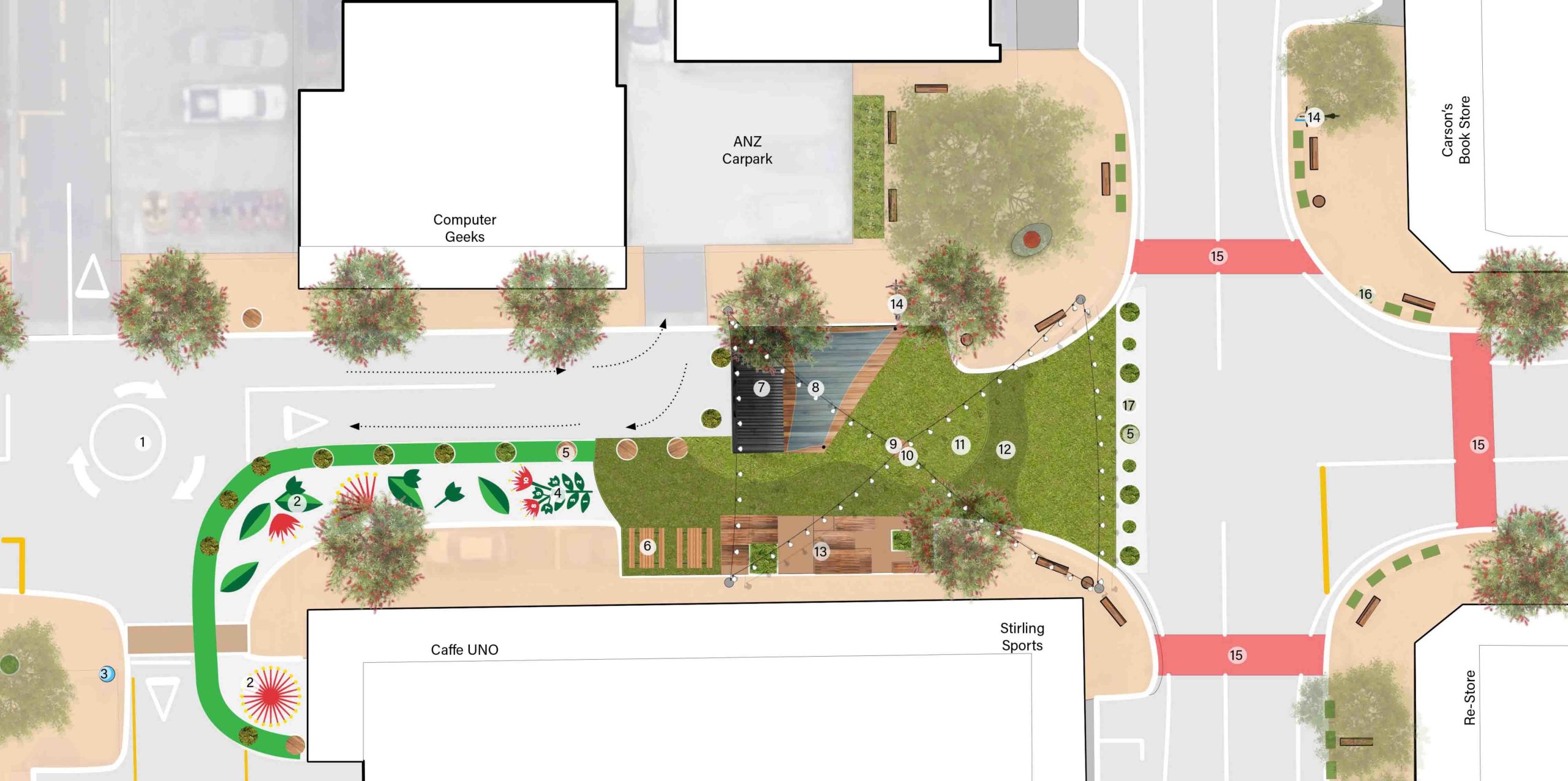High-traffic Thames street to close, many nearby businesses not consulted
Many business owners directly affected by a council decision to partially close a high-traffic street in Thames are upset they weren’t consulted on the $355,000 project and fear it could “make or break” them.
However, Thames-Coromandel District Council says their consultation process was adequate for the temporary project, which could see Mary St closed to through traffic for up to two years.
Construction of stage one of the project begins on February 22 and includes the partial closure of Mary St and the installation of artificial grass, planters, moveable seating and tables, festoon lighting and bike racks.
It also means the removal of nine parking spaces.
Stirling Sports owner Maree Trow said she wasn’t consulted by council about the project, which would impact nearby businesses “dramatically”.
“I’m always supportive of any kind of innovation because it always helps to keep things evolving, but I just don’t think closing off Mary St, which is one of the main thoroughfares, is the right spot to do that,” she said.
“It’s quite disappointing that such a big thing is being introduced with no discussion with the community it’s going to affect.
“We’re all trying to survive following on from Covid, and there’s always a risk of ending up back there, so the impact this will have on our businesses may be the difference between making or breaking us.”
Greg Hampton, owner of Carson’s Bookshop, also said he was not adequately consulted, which should be expected as a directly affected party.
So far 14 business owners within one block of Mary St had contacted him to say they opposed the project, he said.
He was also concerned insufficient information had been provided to the public, such as an analysis of effects, and the random public voting process was “seemingly treated by council as if it were a binding referendum”.
“The business community should not wear the financial risk of a two-year trial when the potential effects have not been adequately assessed,” he said.
“It’s a cool idea but in the wrong place.”
Vita Dryden and Tash Donnelly, owner of Re-store Eco Market, also oppose the project.
They said while they “fully back the kaupapa of this project, and appreciate the effort to ‘create a vibe’ in Thames,” they were concerned anti-social behaviour already witnessed on the corner of Mary and Pollen Streets would continue, and create the wrong kind of “vibe” for the town.
“The research into this particular road closure and what affect any closures might have on the surrounding businesses seems very limited.
“The options the public were given were like parents giving their kids an option between two things they don’t particularly want to do.”
Voting was open at the Create the Vibe Thames container on Mary St for two weeks late last year. Of around 250 votes in that time, 74 per cent preferred the partial closure design, while 26 per cent voted to keep Mary St open to one-way vehicle traffic. There was no option to keep it as it is.
Council spokesperson Laurna White said this was because the project was 90 per cent funded ($320,125) by the Waka Kotahi NZ Transport Agency through its Innovating Streets pilot and 10 per cent ($35,569) from Thames Community Board funds.
“The intention of the Innovating Streets pilot fund is to assist local councils to trial temporary changes to urban streets to improve the ability and opportunity for people to walk, cycle and use public transport where it’s available,” she said. “As such, sticking with the status quo would not achieve the objectives of the fund.”
The trial will be for “around two years,” depending on public feedback and how well the space was used. It would be reviewed after six months, drawing on community views and effectiveness of the changes, Laurna White told The Profile.
Not all businesses were against closing the street.
Caffe Uno owner Jude Henderson voted on the popular option, and said she was visited by a council staff member who talked about the changes.
“It’s going to affect us the most, so we went down there and voted,” she said.
“Cars are always zooming down here, it’s a wonder people haven’t been knocked over, so we’re very excited for what’s going to happen.”
Across the road, Computer Geeks manager Jay Singh said he wasn’t made aware of the upcoming closure, but thought it was “positive”.
“It will give us more foot traffic, and that means more business,” he said.
“This will be the hub.”
Stage One of the trial is being launched at Thames Food and Buskers Festival on March 6.
Stage Two, which involves community input to complete pavement and planter art will begin in April.
By KELLEY TANTAU
PHOTO: Moveable seating and tables, festoon lighting and bike racks will replace nine car parks. (Image: SUPPLIED/TCDC)




